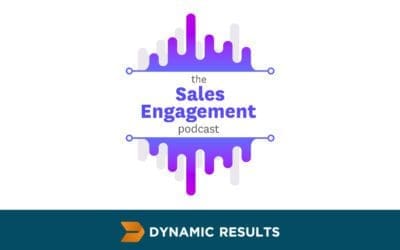The Role of Emotional Intelligence in Creating Safe Work Environments
Hello, I’m Henry Evans, the Managing Partner at Dynamic Results, and as you may be aware, the author of the bestseller, “Winning with Accountability: The Secret Language of High-Performing Organizations.” Today, I want to discuss a critical competency for leaders: emotional intelligence.
In our engagements with various client organizations, occasionally we stumble upon insights that resonate deeply. Sometimes, these insights come unexpectedly, but they often strike a chord, prompting clients to suggest we share them universally.
This month, I want to unveil one such insight. During a session with a group of engineers within a highly technical firm, we proposed a new perspective on their job titles, especially for those in leadership. We introduced the concept of the “Director of Emotional Safety®.”
What does this entail? It suggests that as individuals ascend the organizational hierarchy, their responsibilities and authority increase, yet their direct accountability may diminish. They reach a level where there’s a scarcity of candid feedback on their performance or broken promises. This lack of real-time feedback can result in decisions being made without all the necessary information, often because the culture of fear has silenced those who bear bad news.
We advocate for a culture where individuals feel secure in bringing forward concerns, including those about leadership decisions. This approach is one my team applies regularly, often highlighting areas where I can improve during our weekly meetings. The goal is to foster an environment where such transparency is not just tolerated but encouraged and appreciated. This is the essence of tough love.
Redefining Leadership: Beyond Steve Jobs to Emotional Safety
Successful organizations recognize the value of sometimes uncomfortable, yet crucial conversations. Recalling an interaction with a client during a strategic planning session, the topic of Steve Jobs arose. Jobs was known for his harsh treatment of team members, yet he achieved transformative, industry-altering success. In response, I acknowledged that while Jobs was an exception, most of us are not Steve Jobs and do not possess his unique ability to drive change under such conditions.
The take-home message is clear: As leaders, it is incumbent upon us to cultivate an atmosphere of Emotional Safety®, enabling us to stay in tune with the realities of our organization. This culture of openness ensures that decisions are made based on up-to-date and complete information.
Discover Our Emotional Safety® Program: Learn more about how to create a culture of emotional safety in your organizations, leading to better teamwork and productivity.
—
For more insights into integrating Emotional Intelligence into your workplace, feel free to reach out. Connect with us on LinkedIn to exchange experiences, or contact us directly. We eagerly anticipate engaging with you again next month.



